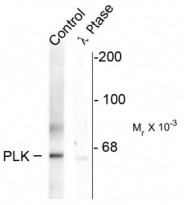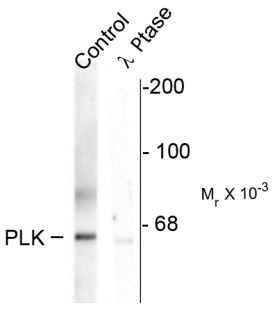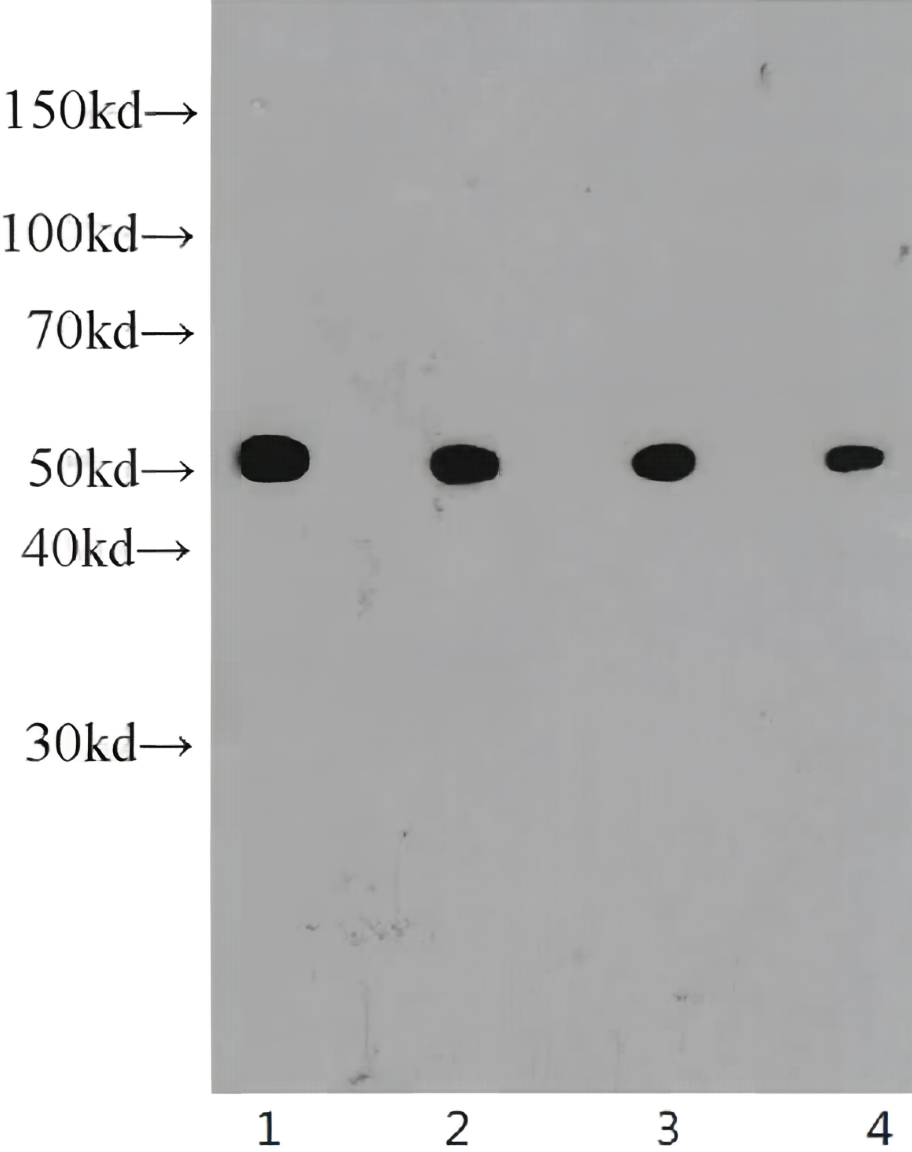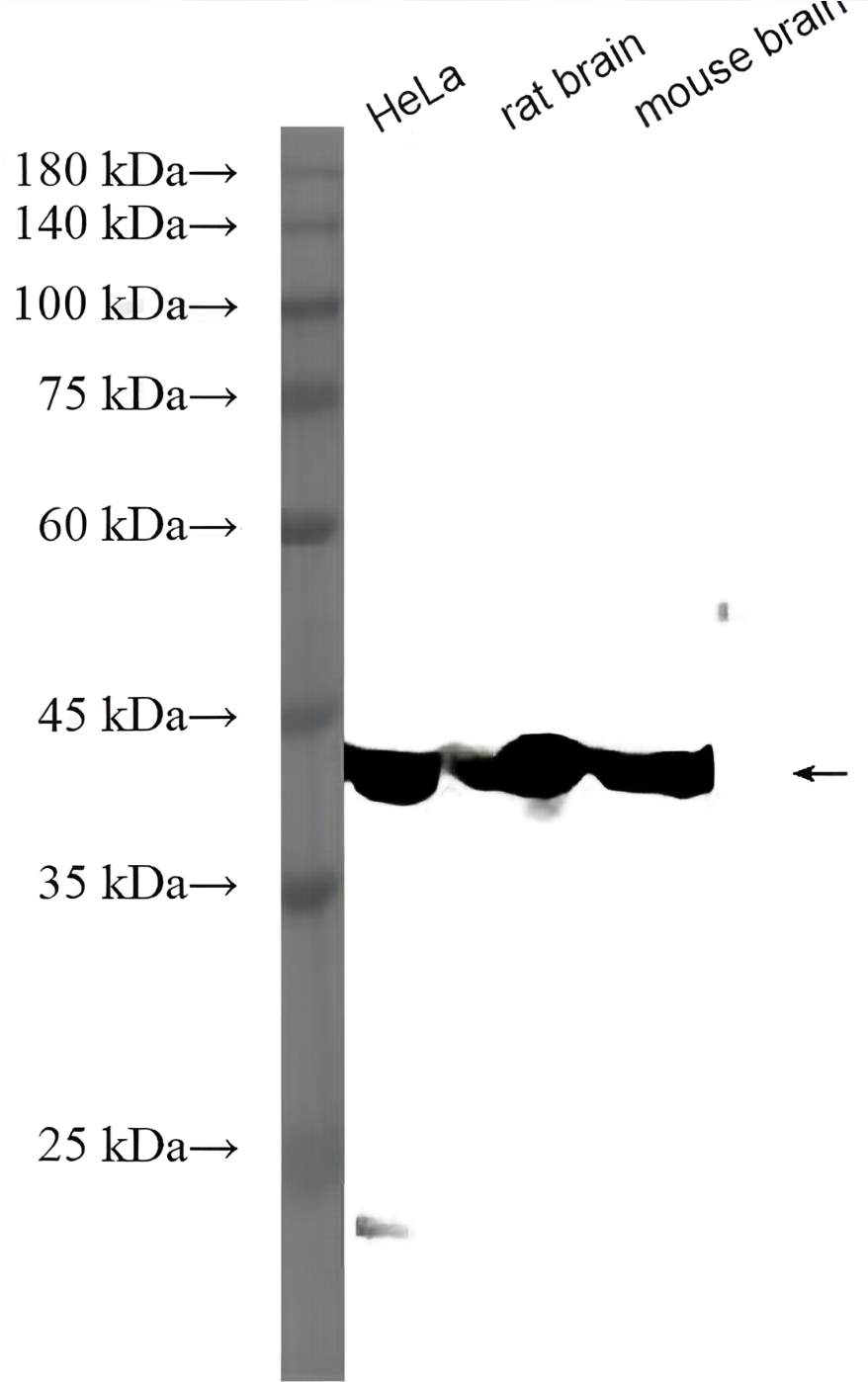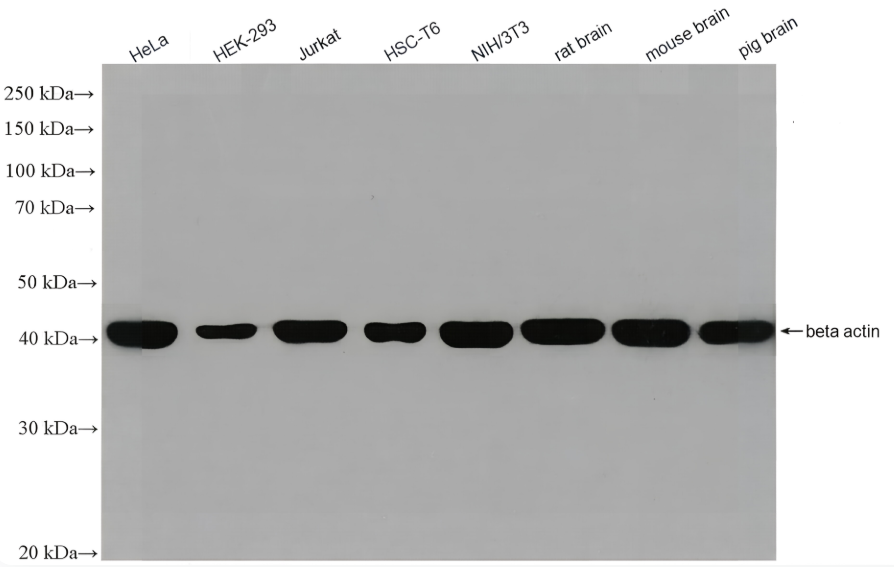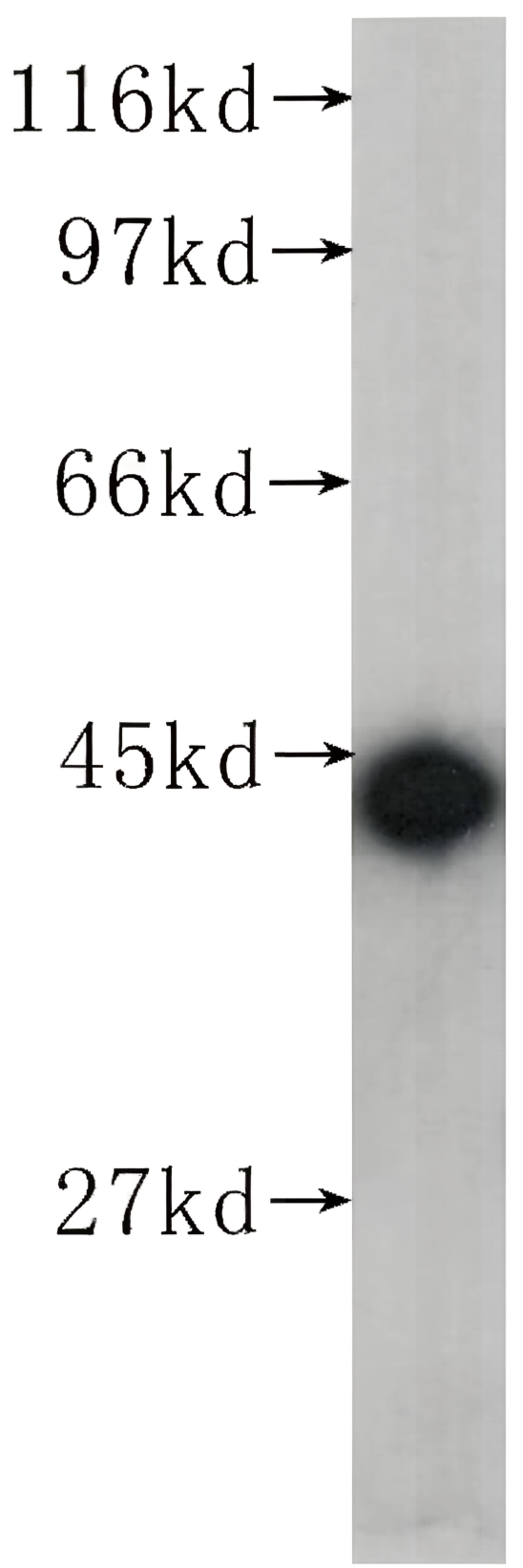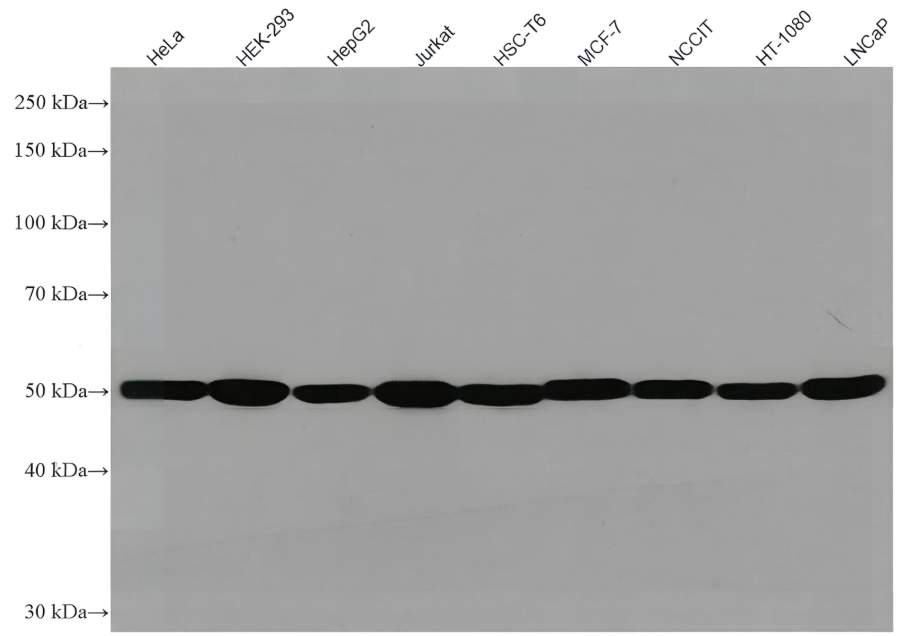anti-PLK1 phospho (Thr210) antibody
CAT.NO. : ARG52396
US$ Please choose
US$ Please choose
Size:
Trail, Bulk size or Custom requests Please contact us
*产品价格可能会有所调整,请以品牌方官网实时更新的价格为准,以确保准确性。
概述
| 产品描述 | Rabbit Polyclonal antibody recognizes PLK1 phospho (Thr210) |
|---|---|
| 反应物种 | Hu, Rat |
| 预测物种 | Ms, Bov, Dog, NHuPrm, Xenopus laevis, Zfsh |
| 应用 | WB |
| 宿主 | Rabbit |
| 克隆 | Polyclonal |
| 同位型 | IgG |
| 靶点名称 | PLK1 |
| 抗原物种 | Human |
| 抗原 | Synthetic phospho-peptide corresponding to amino acid residues surrounding Thr210 conjugated to KLH |
| 偶联标记 | Un-conjugated |
| 別名 | STPK13; Serine/threonine-protein kinase PLK1; EC 2.7.11.21; Serine/threonine-protein kinase 13; Polo-like kinase 1; PLK-1; PLK |
应用说明
| 应用建议 |
| ||||
|---|---|---|---|---|---|
| 应用说明 | Specific for ~66k PLK phosphorylated at Thr 210. Immunolabeling of the PLK band is completely blocked by λ-phosphatase treatment. * The dilutions indicate recommended starting dilutions and the optimal dilutions or concentrations should be determined by the scientist. |
属性
| 形式 | Liquid |
|---|---|
| 纯化 | Affinity Purified |
| 缓冲液 | 10 mM HEPES (pH 7.5), 150 mM NaCl, 0.1 mg/ml BSA and 50% Glycerol |
| 稳定剂 | 0.1 mg/ml BSA, 50% Glycerol |
| 存放说明 | For continuous use, store undiluted antibody at 2-8°C for up to a week. For long-term storage, aliquot and store at -20°C. Storage in frost free freezers is not recommended. Avoid repeated freeze/thaw cycles. Suggest spin the vial prior to opening. The antibody solution should be gently mixed before use. |
| 注意事项 | For laboratory research only, not for drug, diagnostic or other use. |
生物信息
| 数据库连接 | Swiss-port # P53350 Human Serine/threonine-protein kinase PLK1 Swiss-port # Q62673 Rat Serine/threonine-protein kinase PLK1 |
|---|---|
| 基因名称 | PLK1 |
| 全名 | polo-like kinase 1 |
| 背景介绍 | Polo-like kinases are important regulators of cell cycle progression. PLK1 is a highly conserved Ser/Thr kinase that has essential roles in the formation of mitotic bipolar spindles (van Vugt et al., 2004). Deregulated expression of PLK’s is detected in many types of cancer and associated with oncogenesis (Takei et al., 2005). It has been proposed that PLK1 function is altered at different stages of mitosis through consecutive phosphorylation events at Ser137 and Thr210 (van de Weerdt et al., 2005). |
| 研究领域 | Cancer antibody; Cell Biology and Cellular Response antibody; Gene Regulation antibody |
| 预测分子量 | 68 kDa |
| 翻译后修饰 | Catalytic activity is enhanced by phosphorylation of Thr-210. Phosphorylation at Thr-210 is first detected on centrosomes in the G2 phase of the cell cycle, peaks in prometaphase and gradually disappears from centrosomes during anaphase. Dephosphorylation at Thr-210 at centrosomes is probably mediated by protein phosphatase 1C (PP1C), via interaction with PPP1R12A/MYPT1. Autophosphorylation and phosphorylation of Ser-137 may not be significant for the activation of PLK1 during mitosis, but may enhance catalytic activity during recovery after DNA damage checkpoint. Phosphorylated in vitro by STK10. Ubiquitinated by the anaphase promoting complex/cyclosome (APC/C) in anaphase and following DNA damage, leading to its degradation by the proteasome. Ubiquitination is mediated via its interaction with FZR1/CDH1. Ubiquitination and subsequent degradation prevents entry into mitosis and is essential to maintain an efficient G2 DNA damage checkpoint. Monoubiquitination at Lys-492 by the BCR(KLHL22) ubiquitin ligase complex does not lead to degradation: it promotes PLK1 dissociation from phosphoreceptor proteins and subsequent removal from kinetochores, allowing silencing of the spindle assembly checkpoint (SAC) and chromosome segregation. |
检测图片 (1)
ARG52396 anti-PLK1 phospho (Thr210) antibody WB image
Western blot: Rat synaptic membrane stained with ARG52396 anti-PLK1 phospho (Thr210) antibody showing specific immunolabeling of the ~66 k PLK protein phosphorylated at Thr210 (control). The phosphospecificity of this labeling is shown in the second lane (lambda-phosphatase: λ-Ptase). The blot is identical to the control except that it was incubated in λ-Ptase (1200 units for 30 min) before being exposed to the phospho-Thr210 PLK antibody. The immunolabeling is completely eliminated by treatment with λ-Ptase.
 New Products
New Products




